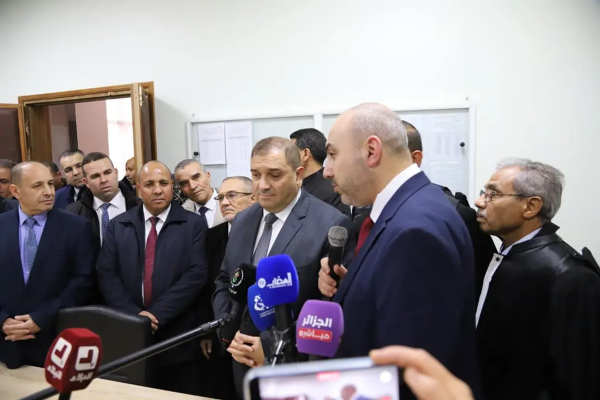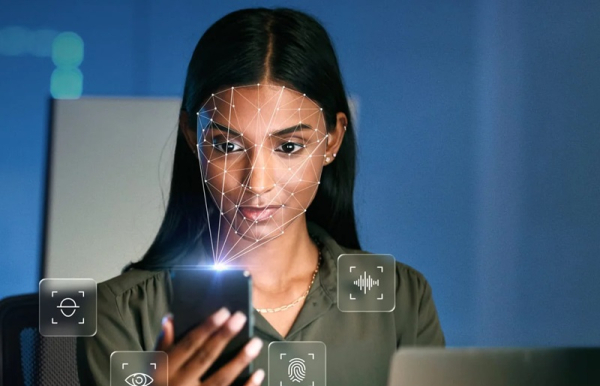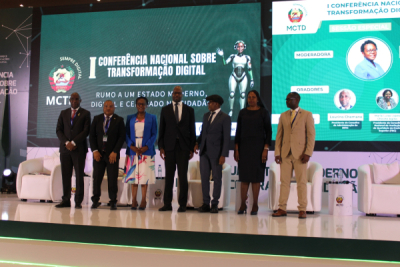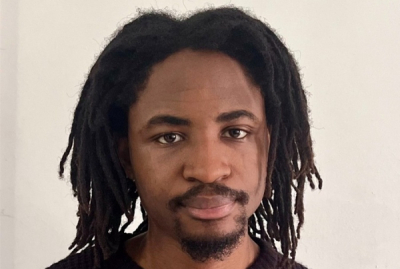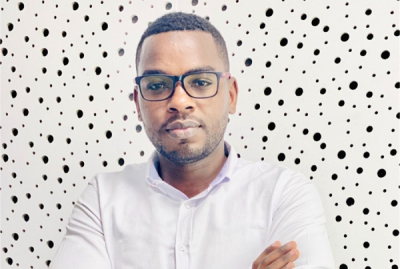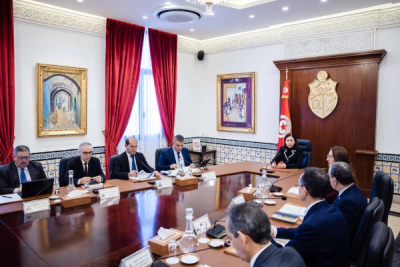- Algeria launches online platform for certified court copies
- Lawyers receive electronically signed documents within 24 hours
- Initiative advances broader judicial digitalization efforts
Algeria's Justice Minister Lotfi Boudjemaa on Sunday announced the launch of a digital platform enabling lawyers to request and retrieve certified copies of court judgments and rulings online. He made the announcement from the Biskra Court on Feb. 15.
The initiative aims to simplify procedures and reduce physical trips to courthouses.
The platform allows lawyers to submit requests for certified copies from both ordinary and administrative courts and retrieve electronically signed documents. Each request is processed automatically and made available within 24 hours. According to the minister, the system modernizes court operations and improves responsiveness for legal professionals and litigants. Access is through each lawyer's electronic account on the Justice Ministry's digital interface for exchanging petitions and briefs.
The initiative is part of a broader push to digitize judicial services in Algeria. Since May 2024, a national electronic portal has allowed case tracking and retrieval of simple copies of judgments and rulings from any court in the country, reducing delays and travel for litigants and their lawyers.
Like Algeria, several African countries have pursued digital modernization of their judicial systems. In Morocco, digital platforms allow lawyers to file documents electronically, track case progress and access certain records such as criminal background checks or court decisions. In Rwanda, the Integrated Electronic Case Management System handles digitization of case filing, case tracking and virtual hearings, making procedures more accessible and transparent for litigants.
Samira Njoya
As site security, regulatory compliance and operational efficiency become top priorities for businesses and institutions, Kenai positions itself as a digital platform for managing visitor and employee access.
Kenai is a digital solution developed by a South African startup. It brings together visitor, staff and vehicle check-ins and site access management on a single interface.
The platform enables pre-registration, rapid check-in, facial recognition and real-time attendance tracking, replacing paper forms and manual registers that are often prone to errors or delays. Based in Johannesburg, the company was launched in 2018 by Robert Salzwedel.
The solution manages non-disclosure agreements (NDAs), consent forms and security checks, using time-stamped digital signatures to generate compliance reports under frameworks such as the General Data Protection Regulation (GDPR) and South Africa’s Protection of Personal Information Act (POPIA).
With Kenai, processes that once took several minutes are reduced to seconds through automation and digital kiosks. Managers can view site occupancy in real time and access instant reports, supporting planning, security and audits.
Recently, the startup secured undisclosed funding from Gallagher Security, a New Zealand company, to support its international expansion. “This investment will allow us to accelerate our already strong growth, and build the team as we expand internationally,” Salzwedel said.
Kenai’s full suite of modules covers the lifecycle of site and access management, including visitors, employees, perimeter access, resource bookings, security training and evacuation procedures. The platform integrates easily with existing infrastructure and access control systems.
Adoni Conrad Quenum
-
Mozambique launched the process to draft a National Digital Transformation Strategy to expand ICT access and support inclusive growth.
-
About 80% of Mozambicans remained offline in 2024, highlighting a large digital gap, according to the ITU.
-
The government aimed to use the strategy to mobilize investment and international support while improving economic resilience.
Last week, Mozambique officially launched the process to draft the National Digital Transformation Strategy. The roadmap aimed to leverage the country’s geographic, energy, and demographic potential, while linking these assets with public digital infrastructure to promote inclusive development and strengthen economic resilience.
The authorities held the launch on February 12, during a special session of the National Conference on Digital Transformation, which took place from February 11 to 12.
According to the government, the strategy design will include regional and national consultations, the definition of a vision, priorities, and performance indicators, the setting of strategic objectives and an action plan, and the establishment of monitoring, evaluation, and governance mechanisms. The authorities said the process will conclude with a participatory validation.
“A nationally designed and owned strategy, coherent and pragmatic, can serve as a foundation to mobilize investment and international support, consolidating digitalization as a cross-cutting enabler of economic transformation, social inclusion, infrastructure development, and environmental sustainability in the country,” said Lourino Chemane, chairman of the board of the National Institute of Information and Communication Technologies (INTIC).
This initiative unfolded amid an acceleration of digital transformation across Africa, where many countries integrate ICT across sectors to support socio-economic development. Within this context, Mozambican authorities increased efforts to expand access to mobile services.
According to the International Telecommunication Union, mobile penetration reached 79.9%, while mobile internet penetration stood at 20.5%.
Mozambique ranked 177th out of 193 countries in the 2024 United Nations E-Government Development Index (EGDI), with a score of 0.2848 out of 1.
The score remained below sub-regional (0.3903), African (0.4247), and global (0.6382) averages.
In cybersecurity, the country placed in the third tier of the 2024 ITU Global Cybersecurity Index, with significant room for improvement in legal, technical, and capacity-building areas.
This article was initially published in French by Isaac K. Kassouwi
Adapted in English by Ange J.A de Berry Quenum
-
Beezop centralizes recurring procedures and task lists to reduce errors and protect brand reputation.
-
Founder Charles Dairo targets workplace disorganization by embedding method into daily operations.
-
The platform adds dashboards, alerts, and analytics to improve execution speed and managerial oversight.
Charles Dairo is a Nigerian computer scientist and technology entrepreneur. He co-founded and leads Beezop, a startup that helps companies organize repetitive tasks and structure work processes.
Founded in 2021, Beezop centralizes all procedures and recurring task lists for teams. The platform ensures that employees know what to do, when to do it, and how to do it efficiently.
The company aims to reduce errors, prevent customer dissatisfaction, and protect corporate reputation. The platform provides an intuitive space to create step-by-step sequences that organize work processes. Teams can share these sequences across the organization so employees access the right instructions at the right time. The tool formalizes company know-how and makes it accessible to all staff, including new hires.
Once teams launch tasks, Beezop displays process progress on a simple visual dashboard. Managers can track execution, identify bottlenecks, and receive alerts when key actions require attention. The system can send notifications at the start, at completion, or at each critical step of a process.
Beyond operations, Beezop delivers analytics to clarify day-to-day business performance. Companies can measure how many processes teams launched or completed over a given period and assess the average execution time of full tasks.
Alongside Beezop, Charles Dairo serves as chief executive of CKDIGITAL, a web development agency he founded in 2011. In 2020, he co-founded Questionwave, a tool that helps users collect questions during Q&A sessions. He also founded Kindlybook, a solution that helps African service providers automate appointment scheduling and payments. Since 2024, he has acted as a startup mentor at the Founder Institute.
Charles Dairo graduated from Redeemer’s University in 2009 with a bachelor’s degree in computer science. He completed an internship at Ericsson in 2008. He joined Unotech Media in 2010 as a designer and web developer. Between 2011 and 2012, he worked as a web design consultant for The Fountain of Life Church.
This article was initially published in French by Melchior Koba
Adapted in English by Ange J.A de Berry Quenum
-
mLouma digitizes price discovery, market access, and services across Senegal’s agricultural value chain.
-
Co-founder and CTO Birahim Babou targets information asymmetry between producers and markets.
-
The platform integrates pricing data, weather services, e-learning, and online marketplaces to improve decision-making.
Birahim Babou is a Senegalese computer engineer and technology entrepreneur. He co-founded and serves as chief technology officer of mLouma, where he supports agricultural stakeholders in production, marketing, and purchasing.
Founded in 2012, mLouma operates as a digital platform designed for Senegalese and African agricultural realities. The company aims to become a reference in digital agriculture by connecting producers, buyers, suppliers, institutions, and young entrepreneurs through simple and accessible tools.
The platform delivers up-to-date information on prices, availability, and product locations. Users leverage this data to guide buying and selling decisions. An intuitive dashboard aggregates multiple services, including agricultural weather updates, access to training content, market monitoring, and online shop management.
In parallel, mLouma developed several complementary solutions. Louma Mbay operates as an online marketplace where agricultural actors list and sell products. Louma du savoir provides an e-learning platform dedicated to agricultural training. Météo Mbay delivers climate information tailored to producers.
Alongside mLouma, Birahim Babou co-founded in 2020 and leads digital learning at Solutions Numériques pour l’Afrique, a Morocco-based software firm that applies technology to education. He also serves as IT project manager at Écoles au Sénégal, an initiative that uses digital tools to reduce inequality in access to quality education.
Birahim Babou holds a master’s degree in software engineering and network administration obtained in 2018 from the École supérieure de technologie et de management du Sénégal. He also graduated from the Université Cheikh Anta Diop de Dakar, where he defended a PhD in mathematics and computer science in 2020.
He began his professional career in 2014 as a senior IT technician at the Université virtuelle du Sénégal. The institution promoted him in 2017 to head of the applications and digital services division within the IT and information systems directorate.
Between 2019 and 2020, he served as head of digital learning at Accent Education, the edtech subsidiary of Moroccan computer hardware brand Accent.
This article was initially published in French by Melchior Koba
Adapted in English by Ange J.A de Berry Quenum
-
Tunisia will implement 192 digital projects and launch full public service digitalization from 2026.
-
Authorities will expand online services, electronic payments and interoperability under the 2026–2030 development plan.
-
Internet penetration reaches 84% of the population, supporting e-government expansion.
The government announced that Tunisia will rely on 192 digital projects to accelerate administrative modernization and initiate full digitalization of public services starting in 2026. Officials made the announcement after a cabinet meeting dedicated to monitoring the digital transition, which took place on Friday, February 13, at the Kasbah Palace.
Prime Minister Sarra Zaâfrani Zenzri chaired the meeting and stated that digital transformation represents a pillar of the state’s economic and social program. The government plans to strengthen online services, generalize electronic payments and ensure interoperability among public institutions under the 2026–2030 development plan.
The executive branch stated that modernization will simplify administrative procedures, reduce processing times, improve transaction transparency and support the country’s economic attractiveness. Authorities also aligned the strategy with efforts to combat corruption, tax fraud and informal practices.
Several flagship projects were already operational at the end of 2025. The government launched a unified portal for administrative services, introduced an electronic tax stamp, enabled remote payment of certain taxes and implemented the first phase of a digital hospital program. Authorities also deployed platforms dedicated to building permits and online administrative procedures. Other initiatives focus on interconnecting public services and developing digital solutions for citizens and businesses.
Tunisia’s relatively high level of digital adoption supports these efforts. DataReportal’s “Digital 2026: Tunisia” report indicates that about 84% of the population uses the internet, while mobile connections exceed 125% of the population. This environment creates favorable conditions for the expansion of online public services.
Authorities plan to prioritize projects that deliver direct impact for users and investors while strengthening cybersecurity and data protection requirements. The government will also implement a national communication plan to promote citizen adoption of digital services.
This article was initially published in French by Samira Njoya
Adapted in English by Ange J.A de Berry Quenum
South African organization WomHub is accepting applications for the second edition of its Green Acceleration Programme, aimed at women entrepreneurs driving sustainable innovation. The programme supports projects in circular manufacturing, climate-friendly technologies and sustainability. Applications are open until February 18, 2026.
Startup Club ZA, a South African network of early-stage tech companies, is launching Platform ZA, a free nationwide platform designed to streamline access to jobs, resources and opportunities. The initiative aims to connect founders, investors and partners, making the tech ecosystem more inclusive and collaborative. Open to all, the platform will continue to evolve based on feedback from the local tech community.
- CNSS to launch pilot of electronic health claim form in Kenitra
- Nationwide rollout planned between April and June 2026
- Reform aims to cut delays, reduce costs, and secure data flows
Morocco will launch the pilot phase of its electronic health claim form (FSE) in Kenitra by the end of March 2026, according to the National Social Security Fund (CNSS). The initiative marks the first step toward fully digital processing of medical claims, with a gradual nationwide rollout planned between April and June, subject to technical and regulatory validation.
The electronic system allows doctors, pharmacists, and other health professionals to transmit consultation, examination, and prescription data directly to health insurance providers without using paper forms.
Under the new process, each prescriber issues prescriptions through dedicated software or the CNSS FSE portal. Patients receive a prescription with a QR code and a unique FSE number. When services are delivered, providers scan the QR code to access the file and record completed procedures, ensuring real-time and secure tracking.
The reform forms part of a broader effort to digitalize Morocco’s healthcare system. The objective is to improve care coordination, shorten reimbursement timelines, and enhance the reliability of administrative data.
It complements other initiatives, including the Shared Medical Record (DMP) and the planned digital health card, both designed to centralize health data, simplify access to care, and generate savings for insurance funds.
Beyond administrative simplification, the FSE carries strategic weight. Healthcare accounts for about 6% of Morocco’s GDP, compared with around 10% in developed economies. The sector faces high administrative costs and reimbursement delays that affect both insured patients and providers.
The electronic claim system is expected to improve data accuracy, reduce disputes linked to paper files, and lower management costs, currently estimated at several hundred million dirhams per year for health insurance funds. It also aims to modernize oversight and performance monitoring of the national health system.
Samira Njoya
- Egypt launches “Egypt Innovate” national digital platform
- Platform connects 780 entities and 81,000 users
- Aims to boost funding access, innovation ecosystem coordination
On Thursday, February 12, Egypt unveiled "Egypt Innovate" in Cairo, the country's first fully integrated national digital platform for innovation and entrepreneurship. The launch took place during the AI Everything Middle East & Africa exhibition at the Egypt International Exhibition Center, with delegations from over 30 countries in attendance.
Developed and operated by a consortium led by Entlaq, alongside partners Robusta and Kamelizer, the platform establishes a public-private alliance designed to unite startups, investors, universities, research centers, and public institutions within a single digital ecosystem.
Ahmed ElZaher, CEO of ITIDA, explained that the platform supports the national strategy to build a knowledge-based economy by using data and advanced technologies to drive sustainable growth. It aims to facilitate funding access through a dynamic database that showcases young companies' business models and value propositions, while elevating Egypt's entrepreneurial ecosystem on regional and international stages.
The platform places particular emphasis on Arabic-language content, which authorities view as essential for digital inclusion and local skills development. Officials believe that providing technical and entrepreneurial resources in founders' native language broadens access to opportunities and reinforces Egypt's standing as a regional innovation hub.
Following its pilot phase, Egypt Innovate now connects 780 entities, including startups, investors, incubators, and research centers, and hosts over 3,700 pieces of sector-specific content. The community comprises more than 81,000 registered users, supported by a network of expert advisors.
The platform's functionality centers on data-driven and AI-powered tools: a digital assistant, an interactive ecosystem map, an automated matching system linking startups with investors, and a learning center offering training, mentorship, and entrepreneurial simulations. A self-verification mechanism, where entities directly update their own information, helps ensure data reliability and accuracy.
Egypt Innovate joins multiple existing initiatives aimed at structuring and financing the country's entrepreneurial ecosystem, which ranks among the region's most dynamic. In 2025, Egyptian startups raised nearly $614 million in venture capital and debt financing, according to the Ministry of Planning, Economic Development and International Cooperation. This figure reflects growing investor confidence. Within this context, Egypt Innovate seeks to strengthen stakeholder coordination and streamline funding access in an increasingly mature market.
Samira Njoya
More...
As companies face rising customer expectations and increasing pressure to deliver faster, more personalized support, Egyptian startup Tactful AI is positioning itself as a next-generation customer experience platform powered by artificial intelligence.
Tactful AI, a digital solution from an Egyptian startup, unifies customer interactions across voice calls, web messaging, social media, and live chat into a single interface. This gives agents a complete view of customer exchanges, streamlines response times, and reduces wait through automation that preserves the human touch.
Founded in 2016 by Mohamed El Masry (pictured), Mohammad Hassan, and Sherif Khairallah, the startup recently announced $1 million in funding to advance its technology and fuel expansion.
"Over the past year, we made a conscious decision to prioritise depth over speed, focusing on product–market fit and working closely with enterprise customers to solve real CX challenges," said El Masry.
At the platform's core is an intelligent routing engine that matches each inquiry to the right agent using customizable rules and behavior-based models. This optimizes customer satisfaction while boosting support team productivity by freeing agents for high-value interactions.
Tactful also deploys multilingual conversational agents that handle routine inquiries 24/7, escalating to human advisors when needed. Through a visual automation studio, businesses can configure complex workflows without technical expertise.
The solution integrates seamlessly with over 1,000 business applications, including CRM, ERP, and CMS platforms, embedding customer interactions into existing systems without data loss or disruption.
This positions Tactful as a next-generation alternative to legacy solutions: a smarter, more flexible, AI-powered platform that helps businesses of all sizes modernize their customer experience.
Adoni Conrad Quenum
Launched in 2024 by Nigerian startup New Generation Tech Ventures, 9jawap is positioning itself as a homegrown alternative to global social networks.
9jawap is a digital platform developed by Nigerian startup New Generation Tech Ventures to offer a locally-tailored alternative to mainstream social networks. Founded in 2024 by Ezekiel Adewunmi, the platform gives users a space to post content, engage with others, sell products, and monetize their presence, all from their mobile devices.
Available on iOS and Android, 9jawap takes a mobile-first approach with tools for creating diverse content types including posts, photos, videos, and blogs. Users can also create groups and events, while earning through tipping and subscription systems that let them monetize their publications directly.
The platform differentiates itself from global competitors by removing what it sees as opaque algorithms and monetization barriers that often restrict creators. It includes an integrated marketplace where users can sell goods or services directly to their community without leaving the platform.
"We identified a gap in locally relevant social platforms that reflect African user behaviour and incentives. Global social networks prioritise ads and subscriptions, while many African users value practical, immediate utility. Competitors include mainstream social platforms and local community apps, but most do not directly incentivise participation in a way that fits local realities," Ezekiel Adewunmi told Disrupt Africa.
To support creators, 9jawap offers "Leader" membership plans with progressive benefits, from increased visibility to expanded sales and branding tools. These features help users build a professional presence while remaining optimized for low-data networks, addressing a critical need in African markets where connectivity can be limited.
Adoni Conrad Quenum
-
Mali now allows citizens to request criminal records and nationality certificates online.
-
The government launched two dedicated portals developed by AGETIC and the Ministry of Justice.
-
Mali ranks 173rd out of 193 countries in the UN’s 2024 e-Government Development Index.
Alhamdou Ag Ilyène, Minister of Communication, Digital Economy and Administrative Modernization, and Mamoudou Kassogué, Minister of Justice and Human Rights, officially launched the online issuance system on February 10. The reform allows citizens to submit applications and receive both documents through digital platforms without physical travel.
Authorities made the services available via two separate government portals: casiercasier.gouv.ml for criminal records and nationalitenationalite.gouv.ml for nationality certificates. Users can file requests and track application progress online.
The government developed the platform through collaboration between the Ministry in charge of Digital Affairs and Agence des technologies de l’information et de la communication (AGETIC), in partnership with the Ministry of Justice.
The initiative forms part of a broader digital rollout across government services. Authorities recently introduced additional digital solutions at the Prime Minister’s Office in the transport, health and territorial administration sectors. These measures complement existing systems, including online services for Malians in the diaspora seeking administrative documents, computerized judicial case management tools and ongoing consular service digitization projects.
However, Mali continues to face structural challenges in digital governance. According to the United Nations 2024 e-Government Development Index, the country scored 0.3005 out of 1, ranking 173rd among 193 states. The score remains below the African average of 0.4247, reflecting progress in online service delivery but persistent gaps in infrastructure and digital skills.
The dematerialization of criminal record and nationality certificate services expands Mali’s online public service portfolio. Yet authorities must address cybersecurity risks, personal data protection concerns and limited digital adoption, particularly in rural areas where connectivity and access remain uneven.
This article was initially published in French by Samira Njoya
Adapted in English by Ange J.A de Berry Quenum
-
Senegal’s National Police launched an online cybercrime reporting platform on February 12.
-
The platform enables secure pre-reporting of a wide range of digital offenses, with a focus on child protection.
-
Interpol estimates cybercrime losses in Africa exceeded $3 billion between 2019 and 2025.
Senegal’s General Directorate of the National Police (DGPN) officially launched a cybercrime reporting platform on Thursday, February 12, as authorities seek to respond to rising digital offenses.
Authorities made the platform accessible via signalementcyber.dgpn.sn. The initiative aims to facilitate the reporting and monitoring of cybercrime cases, which continue to increase alongside the rapid adoption of mobile telephony, internet services and mobile money across Africa. Authorities placed particular emphasis on protecting children online.
The platform allows users to securely and confidentially report a broad range of digital offenses. Users can report fraud, unauthorized content distribution, dissemination of obscene material, online harassment, defamation, digital extortion, child sexual abuse material, hate content, unlawful system intrusion, account hacking, identity theft, SIM swap fraud, romance scams, fake investment schemes, mobile money scams, fraudulent access to mobile money accounts, fake online recruitment, fraudulent payments and fake online sales.
“The system offers victims the possibility of making an online pre-report before formally filing a complaint with the competent services, thereby facilitating access to justice and the rapid handling of cases. Developed internally by engineers of the national police, the online cybercrime reporting platform constitutes a major lever for public sector reform and the strengthening of community policing,” Deputy Director of the Judicial Police Moustapha Diouf said, as quoted by local media outlet SocialNetLink.
Authorities launched the platform amid accelerated digital transformation across Africa, where telecom, internet and social media adoption continue to expand. However, this expansion has coincided with a rise in online offenses, particularly financial scams and personal data breaches. Interpol estimated that cybersecurity incidents across the continent caused financial losses exceeding $3 billion between 2019 and 2025.
In Senegal, authorities framed the initiative as part of a broader cybersecurity strengthening strategy, which policymakers consider essential to fully leverage digital transformation, according to the International Telecommunication Union (ITU). In its 2024 Global Cybersecurity Index, the ITU ranked Senegal in Tier 3 and assessed its regulatory framework, technical measures and cooperation mechanisms as satisfactory. However, the organization identified remaining gaps in capacity development and organizational measures.
This article was initially published in French by Isaac K. Kassouwi
Adapted in English by Ange J.A de Berry Quenum


